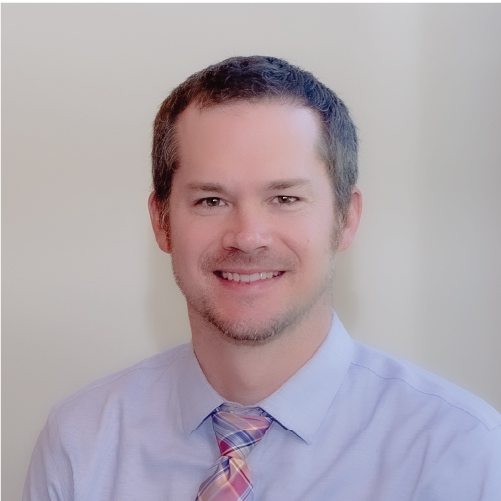Department of Teacher Education
John Essington
Professor of Teacher Education; Director, Center for Faculty Development and Inclusive Teaching
Education
- Ed.D., Educational Leadership – Maryville University
- M.S., History – Illinois State University
- B.S., Political Science – Southern Illinois University Edwardsville
About Me
I am Dr. John Essington, a professor of education here at Blackburn College. Not only am I a professor here now, but I was also a student-athlete at Blackburn College and worked as a writing assistant in the Writers Block. I returned to Blackburn because of the unique experience the college granted me as a student. I love being an educator, and working with future educators is a fantastic career where I can help tomorrow’s teachers create their own teaching style with the tools needed to succeed. I usually work with future middle and high school teachers from different content areas. Additionally, I will serve as an adviser to most of our middle school and secondary school education majors.
In a different area, I serve as the inaugural director of the Center for Faculty Development and Inclusive Teaching. The goal of the Center is to work with Blackburn faculty to learn about different teaching techniques, invite speakers to share their insights with the college, and organize workshops on different teaching methods. Learning from faculty around campus also enables me to share new ideas that I garner in this role with future educators. The environment in education is continuously becoming more inclusive, and finding ways to help all students succeed is a goal for all educators – whether in post-secondary colleges, high schools, middle schools, or elementary schools.
I previously worked as a high school social studies teacher in St. Louis Public Schools in St. Louis, MO. During my tenure as a high school teacher, I also worked on my doctorate at Maryville University – St. Louis. Please find more information about my past experiences and research below. If you have any questions or want additional information about Blackburn, don’t hesitate to contact me through my office phone number or email address.
Learning & Teaching
Courses
- ED 200: Diversity in Teacher Education
- ED 227: Adolescent Psychology and Development
- ED 240: Educational Psychology
- ED 280: Introduction to English Language Learners
- ED 316: Methods for Teaching English in Middle Grades and Secondary School
- ED 317: Methods for Teaching Modern Languages
- ED 318: Methods for Teaching Science in Middle Grades and Secondary School
- ED 324: Methods for Teaching Social Science in Middle Grades and Secondary School
- ED 328: Methods for Teaching Math in Middle Grades and Secondary School
- ED 350: Reading Methods
- ED 354: Elementary School Methods in Social Sciences
- ED 400: Professionalism in Education
- ED 422: Reading and Writing in the Academic Disciplines
Professional Development & Service
Certifications
- Illinois Professional Educators License (9-12) Social Science, English
- Illinois Principal License (K-12)
- Missouri Career Continuous Professional Certificate, Social Science (9-12)
- Missouri Initial Principal Certificate (K–8, 7-12)
- Harvard University, Derek Bok Center for Teaching and Learning, Higher Education Teaching Certificate
- University of South Florida, Diversity, Equity, and Inclusion in the Workplace Certificate
- Google for Education, Level II Certification
Organizations
- Chartered College of Teaching (CCT)
- American Association of University Professors (AAUP)
- International Mind, Brain, and Education Society (IMBES)
- Royal Society of Arts, Manufactures and Commerce (RSA)
- National Council for the Social Studies (NCSS)
- Down Syndrome International (DSI)
Professional Works
Presentations
“Constructive Reflective Narratives,” Association of American Colleges and Universities Conference on General Education, Pedagogy, and Assessment. San Diego, CA, February 2022.
“The Discriminatory Effects of International Standardized Testing in Education,” International Academy of Social Sciences Conference. Madrid, Spain, January 2022.
“DEI in Teacher Preparation,” 101st National Council for the Social Studies Annual Conference. Minneapolis, MN, November 2021.
“Student-Centered Teaching,” REAL (Relating, Experiencing, Applying, Learning) Week, Maryville University, St. Louis, MO, August 2021.
“Constructive Reflective Narratives,” National Council for the Social Studies, Summer Pop Up Webinar. Silver Spring, MD, June 2021.
“Pragmatic pedagogy: Identifying and correcting inclusivity barriers in classrooms,” Maryville University Keith Lovin Workshop. St. Louis, MO, March 2021.
“White ignorance: Identifying concrete ways cultural and systemic issues affect education,” 2021 University of North Texas Equity & Diversity Conference. Denton, TX, February 2021.
“Examining the Unexamined Education,” Society of Philosophy and History of Education. St. Louis, MO, October 2020.
“Google Classroom & COVID,” Blackburn College Faculty Workshop. Carlinville, IL, August 2020.
“Defending Chamberlain: British appeasement, 1937-1940,” Illinois State University Graduate Symposium. Normal, IL, April 2008.
Publications
Essington, J. (2022). Realizing Diversity: COVID’s impact on inclusive classroom learning. In C. Crawford (Ed.), Learner-Centered Approaches to Teaching in an Age of Transformational Change (Upcoming).
Essington.J. (2022). Transformative approaches to social justice education: Equity and access in the college classroom, by Nana Osei-Kofi, Bradley Boovy, & Kali Furma (Eds). Educational Review, Doi: 10.1080/00131911.2021.2007622
Essington, J. (2021). Balancing the art and science of teaching. In M. Aydogmus (Ed.), New trends and promising directions in modern education: New perspectives 2021 (pp. 29-44). Palet.
Essington, J. (2021). Examining the unexamined education: Reviving philosophy in secondary schools. Journal of Philosophy and History of Education, 71, 33-47.
Essington, J. (2021). How we learn: Why brains learn better than any machine…for now, by Stanislas Dehaene. Educational Review, Doi: 10.1080/00131911.2021.1930914
Essington, J., Lumley, W.M., and Wood, M. (2021, February 17). Why we need our world history teacher to be a Martian. British Educational Research Association.https://www.bera.ac.uk/blog/why-we-need-our-world-history-teacher-to-be-a-martian
Editorial Review Board, International Journal of Modern Education Studies, 2021.
